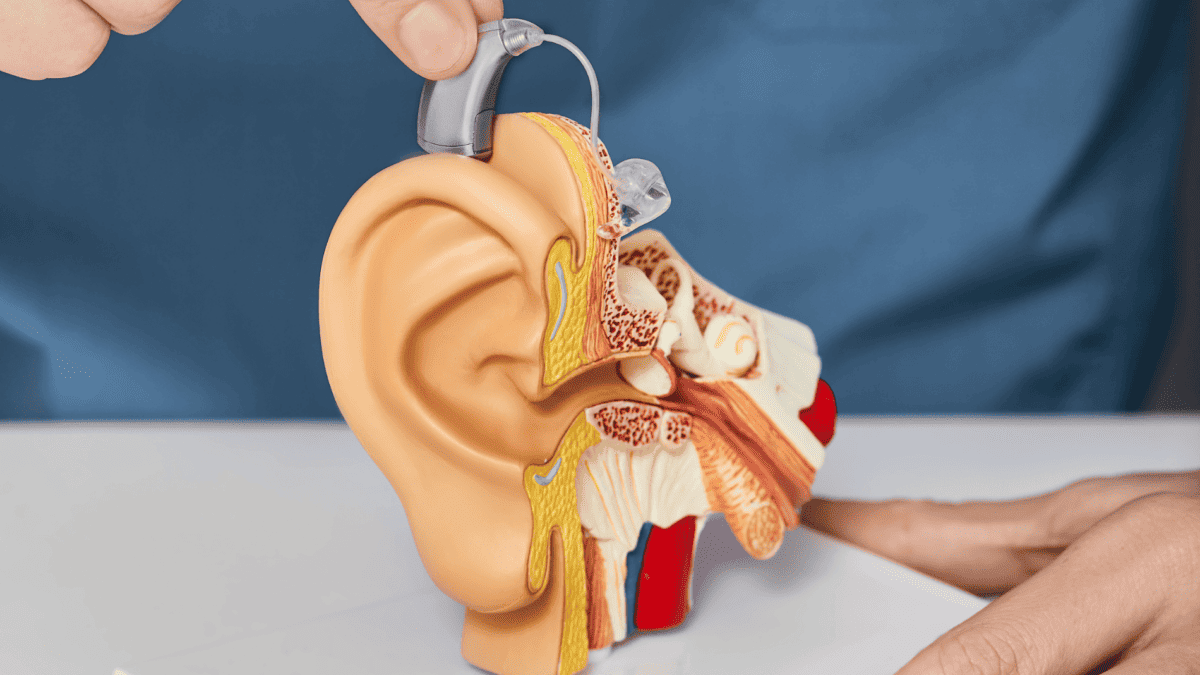Hearing loss can affect individuals of all ages and backgrounds. From mild to profound, temporary to permanent, hearing loss includes a wide range of variations and classifications. Understanding the different types of hearing loss is essential for accurate diagnosis, appropriate treatment, and effective management.
Conductive Hearing Loss
Conductive hearing loss occurs when sound waves are unable to pass efficiently through the outer or middle ear to the inner ear. This type of hearing loss can be caused by earwax buildup, fluid accumulation due to infections or allergies, structural abnormalities in the ear canal or middle ear, or trauma to the ear.
Individuals with conductive hearing loss may experience muffled or reduced sounds, difficulty hearing soft sounds, and problems with sound localization. Treatment options for conductive hearing loss may include medical interventions, earwax removal, antibiotics for infections, or surgical procedures to correct structural abnormalities.
Sensorineural Hearing Loss
Sensorineural hearing loss results from damage or dysfunction in the inner ear (cochlea) or auditory nerve pathways leading to the brain. This type of hearing loss is often caused by factors such as aging (presbycusis), exposure to loud noise (noise-induced hearing loss), genetic predisposition, ototoxic medications, head trauma, or certain medical conditions such as Meniere’s disease or autoimmune disorders.
Individuals with sensorineural hearing loss may have trouble understanding speech, particularly in noisy environments. Other common symptoms include poor speech discrimination and auditory processing. Treatment options for sensorineural hearing loss may include hearing aids, cochlear implants, assistive listening devices, or auditory rehabilitation programs to improve communication skills and quality of life.
Mixed Hearing Loss
Mixed hearing loss involves a combination of conductive and sensorineural components, affecting both the outer or middle ear and the inner ear or auditory nerve pathways. This type of hearing loss may result from a variety of factors, including chronic ear infections, head trauma, ototoxic medications, or genetic syndromes.
Individuals with mixed hearing loss may experience a range of symptoms, including reduced sound perception, difficulty understanding speech, and problems with sound localization and balance. Treatment options for mixed hearing loss may include a combination of medical interventions, such as ear surgery or medication, and rehabilitative measures, such as hearing aids or cochlear implants, tailored to address both conductive and sensorineural components.
Auditory Processing Disorders
Auditory processing disorders (APD) involve difficulties in processing and interpreting auditory information. This type of hearing disorder affects the brain’s ability to make sense of sounds. APD leads to difficulties with speech perception, auditory discrimination, and sound localization. Auditory processing disorders may be caused by factors such as neurological conditions, developmental delays, head trauma, or exposure to environmental toxins.
Individuals with APD may experience challenges in various listening situations, including understanding speech in noisy environments, following verbal instructions, or distinguishing between similar-sounding words. Treatment options for auditory processing disorders may include auditory training, speech-language therapy, assistive listening devices, or educational accommodations to improve communication skills and academic performance.
Sudden Hearing Loss
Sudden hearing loss refers to a rapid onset hearing loss that occurs over a period of 72 hours or less. This type of hearing loss is often unexplained, but it may happen due to viral infections, autoimmune disorders, vascular abnormalities, or inner ear disorders.
Individuals with sudden hearing loss may experience a sudden decrease in hearing ability in one or both ears, accompanied by symptoms such as ear fullness, tinnitus (ringing in the ears), or dizziness. Treatment options for sudden hearing loss may include corticosteroid therapy, antiviral medications, hyperbaric oxygen therapy, or other interventions aimed at preserving or restoring hearing function.
Noise-Induced Hearing Loss
Noise-induced hearing loss (NIHL) is a type of sensorineural hearing loss that occurs as a result of exposure to excessive or prolonged loud noise. This type of hearing loss is preventable but often irreversible.
Individuals with noise-induced hearing loss may experience gradual hearing loss over time, particularly in high-frequency sounds, as well as tinnitus (ringing in the ears) and sensitivity to loud sounds. Prevention is the best approach to noise-induced hearing loss, including wearing hearing protection in noisy environments and limiting exposure to loud noise.
What Type of Hearing Loss Do You Have?
To find out what type of hearing loss you have and find the right treatment options, book a hearing test. Our comprehensive hearing tests will show you exactly what type of hearing loss you have, and what sounds you’re missing. Together we’ll explore treatment options.

